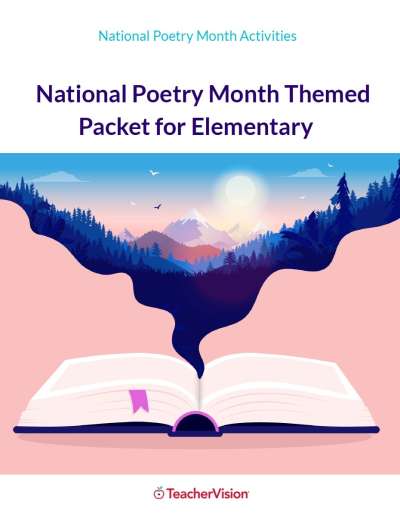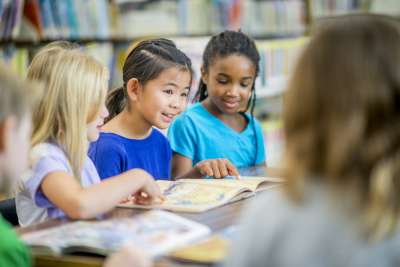Sample Activities
In a reading buddies program, older buddies should choose books that younger buddies will like. They should also practice reading the books aloud a few times before meeting. Buddies can also plan something special for the first visit, such as a dramatic presentation or small-group activities. Every once in a while it is good to schedule a fun activity that is not reading-centered. This creates a tighter bond for all involved.
Or, younger buddies might choose the book that they want read to them. In this case, older buddies should get a copy of the book and practice reading it aloud before the meeting. The main focus of the meeting should be to enjoy books together. The following are activities to enhance the experience.
Reading Memories
As a way to get to know one another better, have older buddies explore their earliest memories of reading. What was the first book they remember being read to them? Ask them to share their reading habits: What do they like to read? When and where do they read? Older buddies could write about a reading memory that they have-and then share it with their buddy. They could discuss or even share their favorite books or stories. Ask buddies to bring in favorite stories from their childhood.
Plot, Setting, Characters
Younger buddies think about the plot or main points of the story, including the beginning, middle, and end. Then they retell the story in their own words.
Discussing Characters
Younger buddies can discuss the interesting characters in a story and list their characteristics. They could also discuss their descriptions and actions and whether they are realistic. It may be interesting for buddies to collaborate on biographies of the main characters of the story.
Illustrations
Younger buddies may want to draw a picture and write a few sentences about the story.
Writing Activities
In addition to reading a book, older buddies may want to engage in writing activities. For example, they could teach their younger buddies letter-writing skills and have them write letters to their idols asking what their favorite book is.
Writing Books
Consider having older buddies write books for their younger buddies. Or, buddies can write books together.
In writing workshops, have older buddies use the writing process to brainstorm, prewrite, draft, revise, edit, and publish their books. Conduct mini-lessons focusing on particular writing skills as needed. They can work individually, with partners, or in small peer-response groups to support each other and share ideas and skills. Encourage your students to share works in progress frequently.
Reflection Log
Have older buddies keep a journal or log recording their thoughts and feelings about working with their buddies. Older buddies can share their experiences in small groups or participate in whole-class reflection activities. At the end of the program, you may want to provide a way for all buddies to reflect on the program and share their thoughts with the class.
Memory Books
You may want to create a memory book at the end of the year with all of the accomplishments and activities. This book can be used the following year to introduce the reading buddies concept to your new students.
Ongoing Reflections
Older students or adults who participate in a reading buddies program may want to gather periodically to share what is and what is not going well with their buddies, their thoughts on the program, what they have learned or discovered through the program, and the like.
How Can You Measure Success?
Depending on the goals of your program, you can measure success a few ways. You can give a survey about reading attitudes before the program starts and then after it has been established. Ideally, students should be more motivated and interested in reading, and they should be starting to see reading as a pleasurable activity. Improvement in reading performance in the classroom can also be seen as a sign of the program's success.











